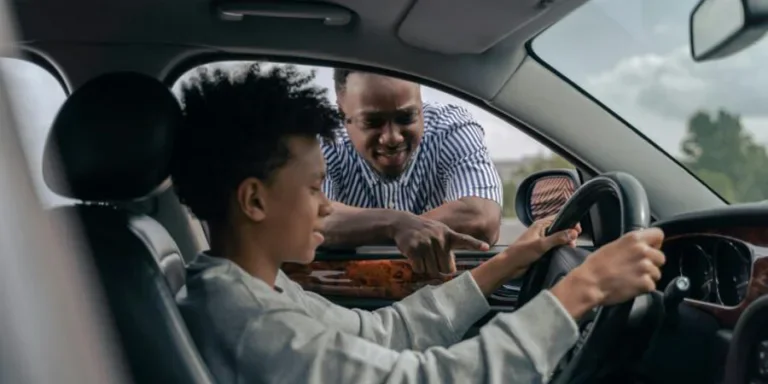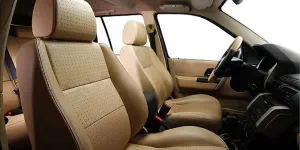Are you thinking of buying a used car? It can make much better sense financially as opposed to buying new, but there are some things to consider. Here’s what you need to know.
Get a Vehicle History Report
First things first, before deciding on your car you should get a vehicle history report,. This document lets you look into the car’s past, and tells you if the car has been in any accidents, undergone major repairs or even had its mileage rolled back illegally. It will also tell you if there’s any finance on the car, if a previous owner has illegally sold the car without fully paying this off- the finance company can repossess it- from you! Even if you bought the car fair and square, so it’s crucial to check. You can get these reports online, and it’s a small investment that can save you from buying a lemon. Admittedly, these aren’t absolutely foolproof as anyone can have an accident and have their car fixed privately (rather than through insurance) and it wouldnt show on a history report. However, it’s something well worth checking as this way you can make sure that the car hasnt ever legally been written off and repaired. If it has, you should adjust your offer accordingly with what you want to pay depending on whether you still want to go ahead with the purchase.
Thorough Inspection
This is something you should do before you sign on the dotted line, leave no stone unturned and go and view the car during daylight hours rather than when it’s getting dark so any issues will be clearer to spot. Start with the exterior, look closely for any scratches, dents or rust spots. These might seem minor, but they could be signs of deeper issues. Pop open the hood and take a peek at the engine. Check for leaks, damaged hoses, or any other red flags, if you bring a torch with you you’ll be able to get a good look at everything. Moving inside, test all the features – seats, windows, air conditioning and electronics to make sure everything’s in working order. Don’t forget to inspect for any fluid leaks under the car, look for signs of things like oil, coolant or transmission fluid leaks as these could indicate potential issues that need addressing. Look at the tyre tread levels and condition, as if these are in a poor state it will mean you having to pay for replacements which can be expensive, especially on top of your purchase price. And even things like wiper blades, bulbs and more. A clean car is usually a good sign, but don’t let it be the only factor in your decision. When you’re buying a used car, there might be some small issues either that need to be repaired or cosmetic damage that you can get fixed, if you know what these are you can negotiate on the price, and be sure that it’s something you can, (and are happy) to have done once you’re the owner. Don’t be rushed by the salesperson, take your time and do all of the checks you need to make sure that you’re happy with the condition. Once you drive away from the dealership or car garage after paying, getting them to put issues right can be a struggle- a lot of places will point blank refuse to help or fix the car once it’s been driven away so be sure to get it right.
Clean and Fix Up
Once you’re the proud owner of your new car, you can go about making it perfect for you. Maybe you could treat it to a dry ice car clean or valet, or you might need to make a few repairs of things that you spotted were wrong before buying. This could be simple things like buying a scratch repair kit or changing a tyre. You might want to personalise it with some new carpet mats, air freshener, boot storage and other accessories so that when you hit the road it’s exactly the way that you want it.
Regular Maintenance
Don’t skip out on regular maintenance, it’s the key to keeping your car running smoothly for years to come. Set up a maintenance schedule and stick to it. Change the oil and oil filter regularly– this helps keep your engine clean and running efficiently. Check and replace the air filter as needed – a clogged air filter can reduce fuel efficiency and engine performance. Keep an eye on the coolant level and top it up if needed- overheating can cause serious damage to your engine. And don’t forget about the brakes, have them inspected regularly and replace the pads and rotors as needed.
Invest in Protection
Breakdowns can happen to anyone, at any time. Protect yourself by investing in breakdown cover, that way if you break down you wont have to pay expensive emergency recovery fees. Instead, you pay a small amount each month and are covered if things go wrong- check your policy but most breakdown covers will tow you to a garage or take you home if your car isn’t driveable. Some repairs can be fixed at the side of the road too.
Source from My Car Heaven
Disclaimer: The information set forth above is provided by mycarheaven.com independently of Alibaba.com. Alibaba.com makes no representation and warranties as to the quality and reliability of the seller and products.





 Afrikaans
Afrikaans አማርኛ
አማርኛ العربية
العربية বাংলা
বাংলা Nederlands
Nederlands English
English Français
Français Deutsch
Deutsch हिन्दी
हिन्दी Bahasa Indonesia
Bahasa Indonesia Italiano
Italiano 日本語
日本語 한국어
한국어 Bahasa Melayu
Bahasa Melayu മലയാളം
മലയാളം پښتو
پښتو فارسی
فارسی Polski
Polski Português
Português Русский
Русский Español
Español Kiswahili
Kiswahili ไทย
ไทย Türkçe
Türkçe اردو
اردو Tiếng Việt
Tiếng Việt isiXhosa
isiXhosa Zulu
Zulu